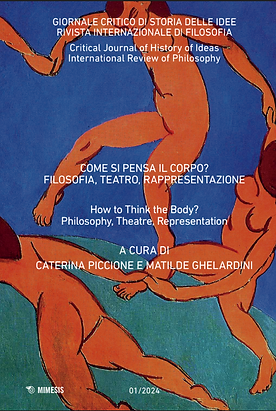N.1/2024 Come si pensa il corpo? Filosofia, teatro, rappresentazione
Pensiero e corpo nel teatro di Samuel Beckett
Andrea Oppo
Published in June, 2024
Thought and Body in Samuel Beckett’s Theatre

Abstract
This article aims to examine some consequences of Beckett’s choice, within
his theatrical research, for an aesthetics of the unword and particularly the shift from an eminently linguistic visual angle – in which subjectivity, sight and thought are one single thing – toward the effective primacy of sound and music, and most of all of the body as the place of our true identity. In fact, Beckett’s later major dramas emphasize the role of the body/object on stage and the author’s continual interrogation of the act of representation. In Beckett’s plays, the body, with its peculiar relationship with gestures, represents the true voice of subjectivity and an intrinsic act of rebellion.
Ultimately, such a rebellion is not a form of liberation of “Self” but rather the contrapuntal element that confirms the absolute uncertainty of Beckett’s final achievement
Keywords
Beckett, Adorno, Theatre, Body, Endgame, Meaning
DOI
10.53129/gcsi_01-2024-05
